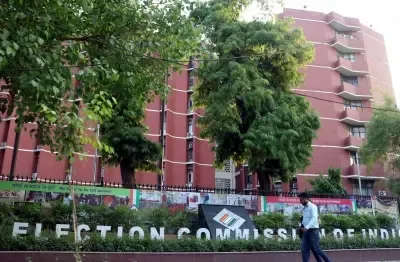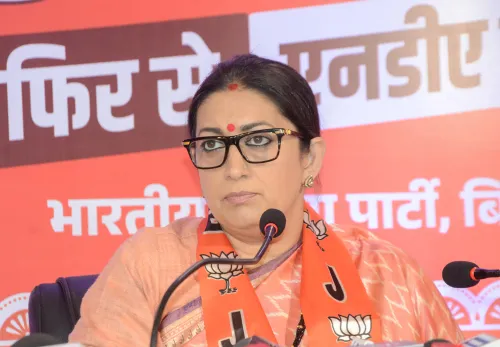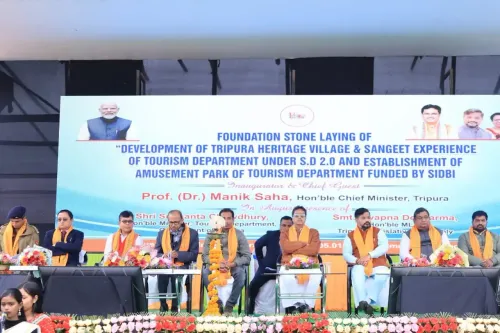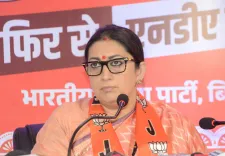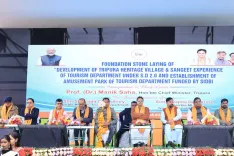Are Small-Scale Fishers in the Bay of Bengal Facing Climate Threats?
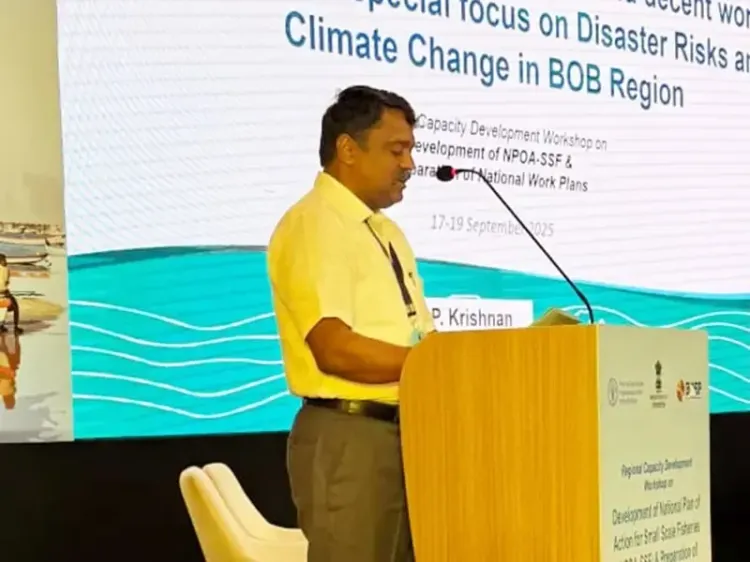
Synopsis
Key Takeaways
- Small-scale fishers are facing increasing threats from climate change.
- The FAO's report highlights the need for urgent action.
- Collaboration among nations is essential for effective responses.
- Implementing frameworks like BOBSAFE is crucial for safety.
- Restoring mangroves can help build resilience.
Chennai, Sep 18 (IANS) Small-scale fishers in the Bay of Bengal are encountering unparalleled challenges to their livelihoods as a result of rising sea temperatures, extreme weather conditions, and more frequent cyclonic disturbances, according to a report from the Food and Agriculture Organization (FAO) of the United Nations.
The three-day conference, co-hosted by the FAO and the Bay of Bengal Programme Inter-Governmental Organisation (BOBP-IGO), convened policymakers, marine scientists, and fisherfolk representatives from India, Sri Lanka, Bangladesh, and the Maldives to address climate-related threats and potential mitigation strategies.
During the presentation of the report titled 'Disaster Risks and Climate Change in BoB Region' on Thursday, BOBP Director P. Krishnan underscored the profound effects of climate change on marine fishing.
"The same waters that once supported millions of livelihoods are now turning more hostile and unpredictable," he stated.
The report indicated that climate-induced storms are decreasing fishing days by 10–15 annually, while marine heatwaves, projected to occur 250 days per year by 2100, could severely impact fish populations and intensify extreme weather.
Additionally, the report cautioned about rising sea levels, storm surges, and saline intrusion, making coastal communities in the region some of the most vulnerable to climate change in South Asia.
Poor access to insurance and low adherence to safety protocols further expose fishers to life-threatening risks.
Krishnan stressed the urgent necessity to enact BOBSAFE, a regional framework on fishermen's safety and working conditions developed by the FAO and BOBP-IGO and officially endorsed in 2023.
Case studies shared at the conference advocated for the restoration of mangroves, the development of disaster-resilient fishing communities, the introduction of climate-smart credit initiatives, relocating erosion-prone populations, and enhancing community-based early warning systems.
Experts emphasized the importance of regional collaboration, shared climate-risk data platforms, and stronger policy alignment with the UN's Voluntary Guidelines for Securing Sustainable Small-Scale Fisheries (VG-SSF).
The meeting concluded on Friday, aiming to promote actionable strategies to protect millions of small-scale fishers whose livelihoods are increasingly jeopardized by the climate crisis.


